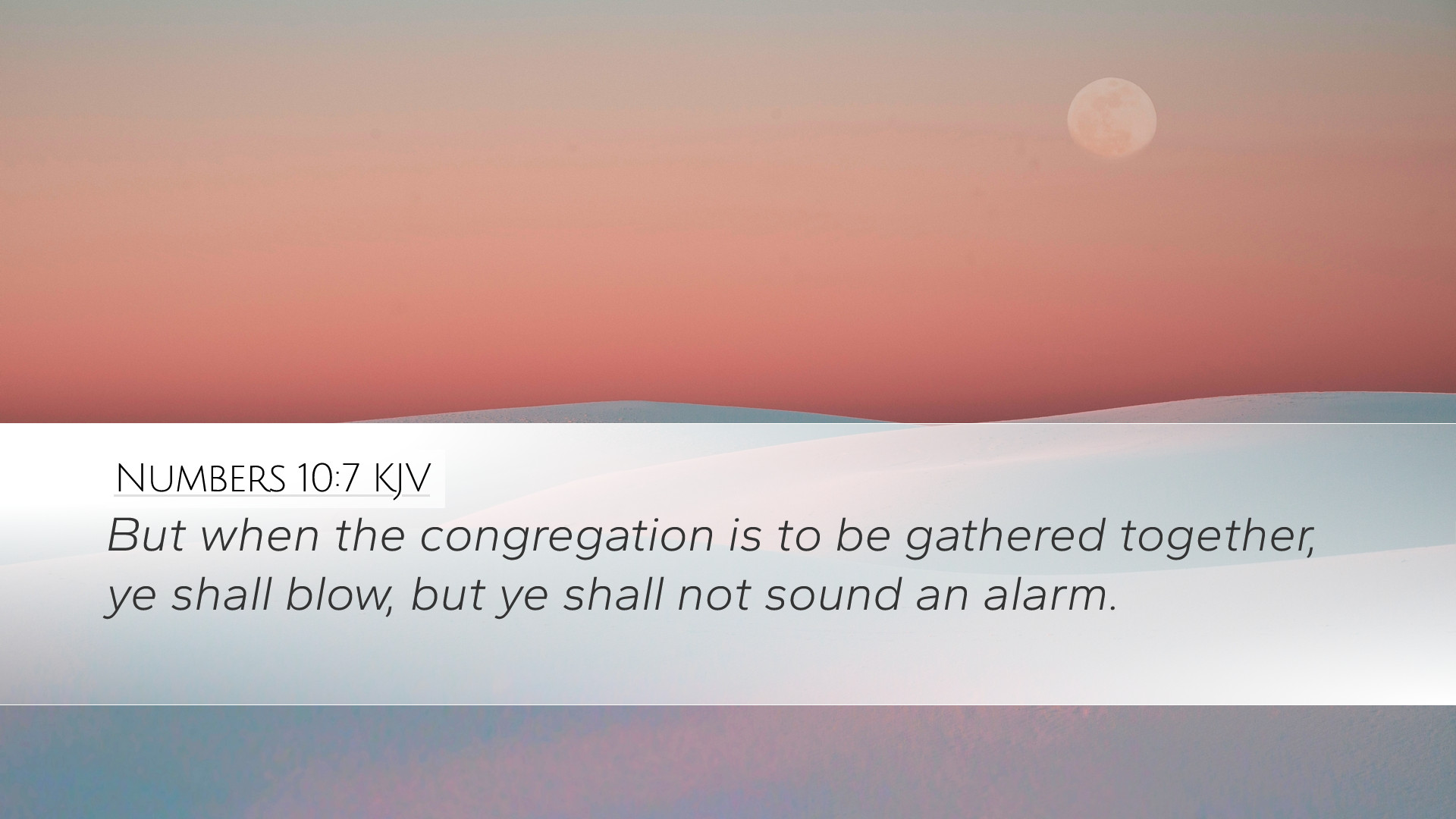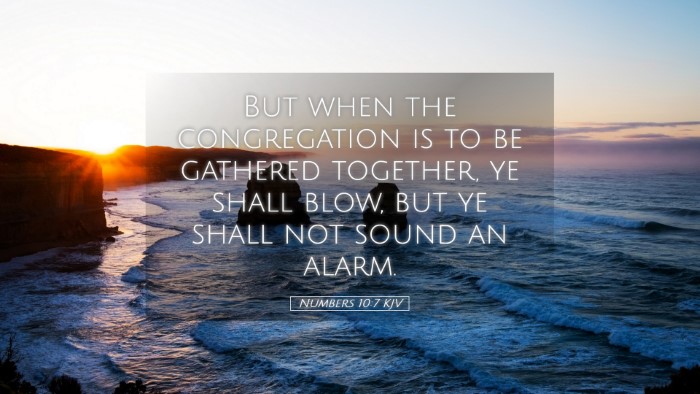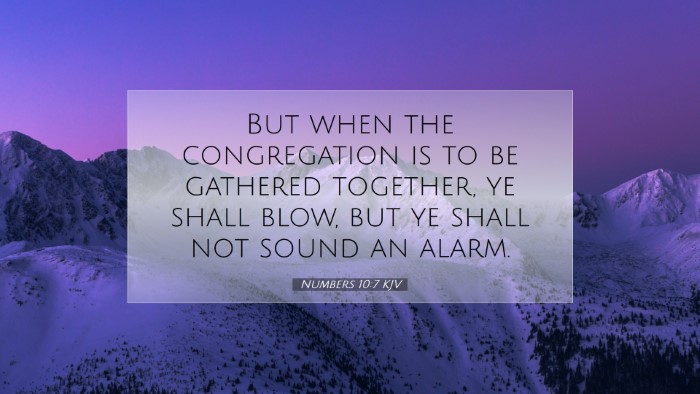Commentary on Numbers 10:7
Numbers 10:7 states: "But when the congregation is to be gathered together, ye shall blow, but ye shall not sound an alarm."
This verse falls within the broader context of the Israelites' wilderness journey, where God provided precise instructions for worship and communal gatherings. The trumpet is a key symbol in biblical texts, representing both call and warning, authority and joy.
Contextual Setting
The book of Numbers is concerned with the organization and conduct of the Israelites during their journey to the Promised Land. Numbers 10 focuses on the use of silver trumpets, which were designed for various purposes.
Significance of the Trumpet
- Religious Significance: The trumpet served a religious purpose, signaling the time for gatherings, sacrifices, and celebrations. It was a means of calling the people to worship and reminding them of their covenant obligations.
- Liturgical Use: According to Matthew Henry, different notes on the trumpets indicated different gatherings. For instance, one trumpet note summoned the leaders while another was for the entire congregation.
- Symbol of Authority: Adam Clarke emphasizes that the trumpet denotes authority, as it was a tool used to convene the people and establish order among them.
Interpretation Insights
In examining the command to blow trumpets, we find layered meanings regarding God's order within the community:
- Gathering the Community: The gathering of the congregation highlights the importance of community worship. Albert Barnes notes that communal worship fosters unity and strength as believers come together before God.
- Clarity of Purpose: The command to not sound an alarm indicates a deliberate choice to maintain peace and composure when gathering for worship. This reflects God's desire for an orderly approach to sacred events.
- Holiness of Assembly: The trumpet's sound was not just a call but a sanctification of the moment. Each gathering was an acknowledgment of God's sovereignty over Israel.
Theological Reflections
From a theological perspective, the trumpet's role symbolizes the call of God to His people. It suggests that God desires His people to be attentive and responsive to His summons.
- Divine Calling: Just as the trumpet calls the Israelites, God calls His people today through His Word and Spirit. This has implications for Christian worship and community life.
- Preparation for Worship: The specific instructions concerning the trumpet serve to remind believers of the need to prepare their hearts and minds before entering into worship. This reflects a biblical principle of reverence and readiness.
- Assembly in Christ: In the New Testament, the gathering of believers takes on new significance through the church as the Body of Christ. The use of the trumpet in the Old Testament foreshadows the ultimate gathering of God's people as described in Revelation.
Practical Applications for Pastors and Leaders
This verse offers numerous insights practical for pastors and church leaders:
- Creating Intentional Gatherings: Church gatherings should serve clear spiritual purposes. Leaders should be intentional about planning services that foster community and spiritual growth.
- Encouraging Unity: Just as the trumpets called the community together, church leaders should strive to cultivate unity within their congregations, promoting a spirit of cooperation and mutual respect.
- Emphasizing Orderliness in Worship: Worship should be conducted with a sense of order and reverence. Leaders can apply this verse by ensuring that practices and liturgy enhance the worship experience instead of detracting from it.
Concluding Thoughts
Numbers 10:7 challenges believers to reflect on how they respond to God's call. In the array of trumpet sounds, one must recognize the importance of coming together as a body in worship, not to sound alarm but to celebrate God's faithfulness, remember His statutes, and affirm the covenant relationship shared among His people.
As we consider the richness of this verse, may we be inspired to heed the divine summons, acknowledging God's authority and the sacredness of communal worship.


